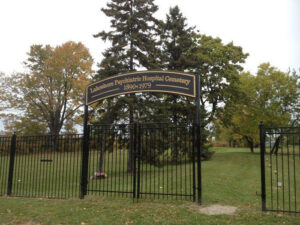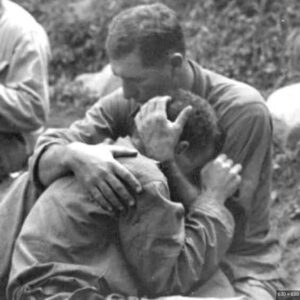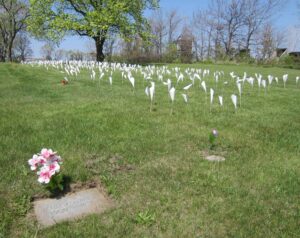Friends of the Lakeshore Psychiatric Hospital Cemetery will host a 50-minute memorial on October 22 to remember World War 1 Veterans, Indigenous people and others buried there.
The memorial will feature music, Indigenous smudging, drumming, poetry and a military remembrance service.
“This service commemorates the lives of individuals, including Indigenous persons and World War I Veterans; who faced immense challenges within the walls of what is now Humber College Lakeshore Campus,” said spokesman Hark Savinsky .
Many of the 1,511 buried at the cemetery were taken from small towns in northern Ontario and would often be institutionalized for the rest of their lives, he said.
Savinsky said the Lakeshore Psychiatric Hospital, formerly called the Mimico Asylum, had a storied history, bearing witness to the struggles of countless individuals who battled mental health challenges, and faced treatments and procedures which today would be deemed inhumane.
“This service seeks to pay homage to their unique stories which have shaped the progress Canada has made in defining mental illness, in recognizing the dignity, worth and rights of those struggling with mental health,” he said.
Among those being honored are World War I Veterans who perished at the hospital.
“These brave men returned from the trenches, scarred by the horrors of war and burdened by the invisible wounds of PTSD,” Savinsky said. ”In the early 20th century, understanding and support for mental health conditions were limited.”
Their trauma was interpreted as cowardice or lack of moral character.
“The wartime belief that they were exaggerating was never fully dispelled,” he explained. “We want to take time to stand with them and honour them and recognize the panic that gripped their young lives.”
Savinsky said it is important to recognize and honour the indigenous heritage of the land since ‘it reflects a commitment to reconciliation and respect for the rich cultural history that has deep roots in the region.’
“The anguish of separation and loss of identity experienced by First Nations and Metis residents added an additional dimension to the loneliness and anguish to people in their ‘home and native land,” he said.
The logistics and operations of the asylum experience mirrored that of Residential Schools from its architecture to the abuses within its walls and to the disposal of its dead.
“The service embodies the spirit of unity and respect for all who have been part of the institution’s history,” Savinsky said.
The service is open to those who wish to pay tribute to the Indigenous patients or World War I veterans, or simply want to show their support for the principles of reconciliation, remembrance, and mental health awareness.
“The service emphasizes the importance of acknowledging the past while looking towards a future that fosters compassion, understanding, and support for those facing mental health challenges,” Savinsky said.
The service takes place at the cemetery at 231 Evans Avenue, on October 22, at 10 a.m. All are welcome.
A petition has been started online by the group to plant more trees to beautify the cemetery grounds. It can be accessed at Gofundme.com.


